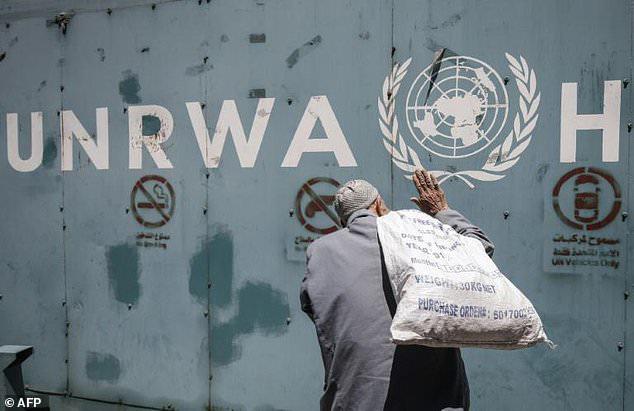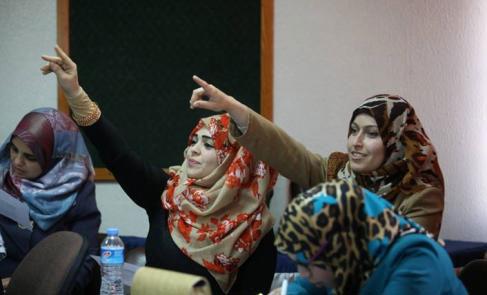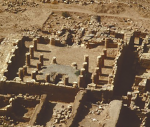You are here
UNRWA’s financial crisis relieved; schools on time
By Laila Azzeh - Aug 19,2015 - Last updated at Aug 19,2015

Students are seen at UNRWA’s Amir Hasan Girls School in south Amman in this February 2014 file photo (Photo courtesy of UNRWA/Alaa Ghosheh)
AMMAN – UNRWA schools will open on time after nearly three months of anticipation over the fate of its educational programme.
UNRWA Commissioner General Pierre Krähenbühl on Wednesday announced the start of the scholastic year on time at the organisation's 685 schools after receiving funds to help address the $101 million budget gap.
In his official Twitter account, he paid tribute to Jordan for its endeavours to resolve the agency's crisis.
"Special thanks for strong support to Jordan and Foreign Minister Nasser Judeh in particular for his tireless efforts, leadership, engagement and trust," he said.
In a report by the Jordan News Agency, Petra, the agency highlighted the efforts the Foreign Ministry has exerted to rescue UNRWA, including making contacts with 49 foreign ministers of donor countries and others, in addition to UN Secretary General Ban Ki-Moon.
Although only $78.9 million has been secured as of Wednesday, Krähenbühl noted that the decision to open schools according to schedule as "essential because education is a right and key to identity and dignity of half-million Palestine refugee children".
“Since early June UNRWA has worked hard to overcome a deficit of $101 million affecting its core services for Palestine refugees. Unprecedented deficit put our flagship education programmes at risk and meant that the school year may not open on time for 500,000 boys and girls,” he said on his official Twitter account and a statement made available to The Jordan Times.
“Today [we are] pleased to announce UNRWA school year open, on time. Follows major effort which has to date resulted in donations of $78.8 million,” the commissioner general said, highlighting measures previously taken by the agency to cut internal costs before turning to donors and partners.
He added that UNRWA has worked hard to ensure full-quality school year and salaries for its education staff.
“For this we needed to urgently close funding gap,” he explained.
The official expressed his “profound” appreciation to donors, namely Saudi Arabia for extending $19 million, Kuwait, $15 million, the UAE, $15 million and the US, $15 million.
“We are deeply grateful to Switzerland ($5m), UK ($4.5), Norway ($2.4) and Sweden. All contributed significantly to help address deficit”, he added.
Krähenbühl also addressed UNRWA staff, including the educational team, noting that recent weeks were “filled with anxiety and uncertainty”.
“[Things] should never have come to our education programme being at risk because of lack of funds. But it did. Must ensure it never happens again,” he noted.
In the statement, the UNRWA chief claimed that his agency’s educational programme is considered one of the best and most effective in the region.
“The agency did not want to risk the quality of its education or the rights of educators, and therefore insisted on covering the entire budget deficit before the start of schools,” he indicated.
UNRWA will continue its efforts to improve the financial stability of the entity, the only body dedicated to serve a specific national community.
According to a statement from the US embassy, Washington’s contribution “is part of a multi-donor effort to bridge UNRWA’s current year deficit so UNRWA schools open on time…”.
“This funding brings the overall US 2015 contribution to nearly $350 million, $165 million of which went to the General Fund to support essential services like education. The United States has been and remains the largest and most reliable bilateral donor to UNRWA,” read the statement.
The US pledged to continue working with UNRWA, host governments, other donors and Palestinian refugee communities to ensure the continuity of the agency’s core services until a just and lasting solution to the plight of Palestinian refugees is reached.
Education is deemed by the Palestinian refugees as the most essential service provided by the agency.
Nearly 80 per cent of UNRWA’s funds are directed to its schools in the agency’s five fields of operations, where half-a-million students receive education.
Around 120,000 students are enrolled in UNRWA-run schools in Jordan.
The main reason that aggravated the financial difficulties of UNRWA was the “inability” of some donors, who have been loyal to the agency since 1950, to “keep up pace with the number of refugees and the growing number of whom who are falling under the poverty line”.
The other reason is related to the instability of regions that host Palestinian refugees, such as Syria and Gaza, which made the agency direct its spending towards emergencies.
Related Articles
AMMAN — The international community’s support and the Jordanian efforts have helped UNRWA overcome its financial crisis in 2018, director of
DEAD SEA — UNRWA continues to offer a safe haven for Palestinian refugees, despite operating at a time of regional turmoil that complicates
AMMAN — Jordan on Sunday stressed that the United Nations should continue to offer services to Palestinian refugees as long as their plight


















